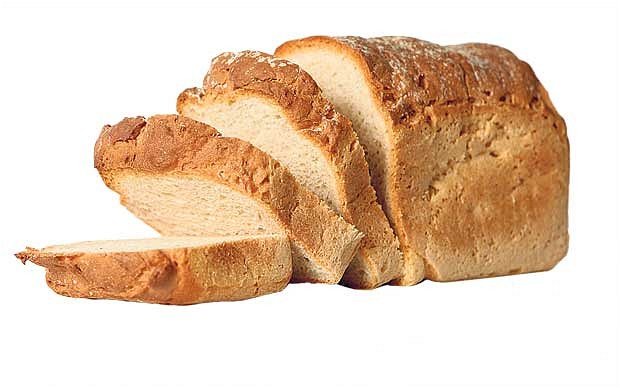American company Microzap has developed a technique that it says can make bread stay mould-free for 60 days.
The bread is zapped in a sophisticated microwave array which kills the spores that cause the problem.
Microzap claims it could significantly reduce the amount of wasted bread.
The technique can also be used with a wide range of foods including fresh turkey and many fruits and vegetables.
Food waste is a massive problem in most developed countries. In the US, figures released this year suggest that the average American family throws away 40% of the food they purchase – which adds up to $165 billion annually.
One of the biggest threats to bread is mould. As loaves are usually wrapped in plastic, any water in the bread that evaporates from within is trapped and makes the surface moist. This provides excellent growing conditions for Rhizopus stolonifer, the fungus that leads to mould.
In normal conditions, bread will go mouldy in around 10 days.
But Microzap says it has developed a technique that will keep the bread mould free for two months.

At its laboratory on the campus of Texas Tech University in Lubbock, chief executive Don Stull showed off the long, metallic microwave device that resembles an industrial production line. Originally designed to kill bacteria such as MRSA and salmonella, the researchers discovered it could kill the mould spores in bread in around 10 seconds.
“We treated a slice of bread in the device, we then checked the mould that was in that bread over time against a control,” he explained.
“And at 60 days it had the same mould content as it had when it came out of the oven.”
The machine the team has built uses much the same technology as found in commercial microwaves – but with some important differences, according to Don Stull.
“We introduce the microwave frequencies in different ways, through a slotted radiator. We get a basically homogeneous signal density in our chamber – in other words, we don’t get the hot and cold spots you get in your home microwave.”
Microzap’s device has attracted plenty of interest from bread manufacturers – but it is worried that it could push up costs in an industry where margins are very tight.
And there is also a concern that consumers might not take to bread that lasts for so long. Don Stull acknowledges it might be difficult to convince some people of the benefits.
“We’ll have to get some consumer acceptance of that,” he said.
“Most people do it by feel and if you still have that quality feel they probably will accept it.”
Don Stull believes that the technology could impact bread in other ways. He said that bread manufacturers added lots of preservatives to try and fight mould, but then must add extra chemicals to mask the taste of the preservatives. If bakers were able to use the microwave technology, they would be able to avoid these additives.
While a wholesale change in the bread industry might be difficult to achieve, there may be more potential with other foods, including ground turkey.
In 2011, food giant Cargill had to recall 16 million kg of the product after a salmonella outbreak. Don Stull believes that using microwaves would be an effective way of treating this and several other products ranging from jalapenos to pet foods.
The only fruit that his device was unable to treat effectively were cantaloupes.
“We’ve used our tumbler machine to treat them, but you can’t tumble cantaloupes because they damage,” he said.

I cannot understand how “margins are tight” in an industry that charges 3.5 to 4 dollars for a loaf of bread. In Western Europe, a loaf of very high quality bread is about half of the price, and they are importing the grain from the U.S., I might also add that labor costs are extremely high in Western Europe, but they do tend to use mechanized labor saving, equipment, while here we use cheap, questionable, legal / illegal labor. I think that the truth is the fact the companies that own the bakeries are just plain greedy and are paying their executives a bloated, unreasonable salary and bonuses.
They want to continue to do business as they always have, at the expense of the middle class consumer.
Does this sound familiar in 2012 ?